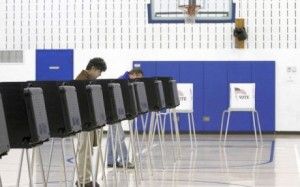Suburban Voters Key To '12 Races
Since at least 1984, including the last six presidential elections, swing suburban voters have determined which party controls the White House and Congress. And the suburbs should remain politically fickle through next year.
Take a recent special election in a congressional district between Buffalo and Rochester, New York, dominated by two large suburban towns.
"Independents and soft Republicans in the suburbs tilted this election," said Thomas Reynolds, who once ran the Republican House election operations when he occupied the seat. "You can't take these voters for granted here or anywhere. If they don't like what they see or hear, they will leave you in a heartbeat."
Reynolds would get no argument from the congressman who currently oversees the Democrats' effort to reverse last year's historic losses, when the GOP picked up 63 seats in a rebuke of the Obama's management of the economy.
"Consistently, the path to regain the Democratic majority cuts through the 36 suburban areas where 9 million moderate, independent voters live," said Rep. Steve Israel (D-New York), who chairs the Democratic Congressional Campaign Committee. "We lost the majority in 2010 because we lost the independent voters in the suburbs who supported us in 2006 and 2008. And they are coming back to us steadily due to Republican extremism."


